Understanding the Legal Landscape for Landlords in Jupiter
Introduction: The Importance of Legal Awareness
Being a landlord in Jupiter, Florida, offers opportunities for income and investment, but it also comes with a unique set of legal responsibilities and obligations. Many landlords inadvertently make legal mistakes that can lead to costly consequences, from tenant disputes to fines and lawsuits. The key to being a successful landlord is not only providing quality housing but also ensuring that all legal aspects of property management are handled properly.
In this first part of the guide, we will explore some of the most common legal mistakes made by landlords in Jupiter and how you can avoid them by understanding local laws, tenant rights, and property management best practices.
Common Legal Mistakes Landlords Make in Jupiter
1. Failing to Properly Screen Tenants
One of the most crucial steps in managing a rental property is selecting the right tenants. Failing to properly screen tenants can lead to various legal problems down the road, such as unpaid rent, property damage, and even eviction proceedings.
Mistake to Avoid: Neglecting background checks or violating tenant privacy rights during the screening process.
How to Avoid It:
- Conduct Thorough Background Checks: In Jupiter, as in the rest of Florida, landlords have the legal right to conduct background checks on potential tenants, including credit reports, criminal history, and rental history. However, landlords must comply with the Fair Housing Act, which prohibits discrimination based on race, color, religion, gender, family status, disability, or national origin.
- Use a Standardized Application: By using a standardized application form, landlords can ensure they collect consistent and legally compliant information from all applicants. Avoid asking questions that could lead to discrimination.
- Adhere to Local Ordinances: Ensure that the application process complies with both Florida state law and Jupiter-specific ordinances, such as those concerning rental property requirements and tenant rights.
2. Not Having a Properly Written Lease Agreement
A verbal agreement or an incomplete written lease can cause confusion and lead to disputes between landlords and tenants. A well-crafted lease agreement not only clarifies expectations but also protects both parties in the event of a conflict.
Mistake to Avoid: Using a generic or outdated lease agreement that fails to address key legal issues specific to Jupiter or Florida law.
How to Avoid It:
- Create a Clear, Comprehensive Lease Agreement: The lease agreement should clearly outline all terms and conditions, including rent amount, due dates, maintenance responsibilities, pet policies, and rules for property use. Additionally, it should address security deposits, late fees, and procedures for resolving disputes.
- Include State-Specific Clauses: Ensure your lease complies with Florida’s laws on rental agreements. For example, Florida law mandates that a lease agreement must specify the length of the lease (whether fixed-term or month-to-month) and how much notice is required for ending the lease.
- Consult a Local Attorney: To ensure your lease agreement meets both state and local requirements, it is advisable to consult a real estate attorney familiar with Jupiter rental property regulations.
3. Improper Handling of Security Deposits
Security deposits can be a source of tension between landlords and tenants if not handled correctly. Mismanaging security deposits can lead to legal issues, including disputes, fines, and even lawsuits.
Mistake to Avoid: Failing to follow Florida’s security deposit laws or neglecting to return the deposit on time.
How to Avoid It:
- Understand Florida’s Security Deposit Laws: Under Florida law, a landlord is required to return a tenant’s security deposit within 15 days if there are no damages. If there are damages, the landlord must provide an itemized list of deductions within 30 days.
- Document Property Condition: Always take detailed photos and notes of the property’s condition before the tenant moves in and again when they move out. This documentation will help you justify any claims against the security deposit for damages.
- Provide Proper Notice: If you intend to withhold part or all of the security deposit, you must send the tenant a written notice outlining the reasons within the appropriate time frame. Failure to do so can result in a loss of the right to withhold the deposit.
4. Not Complying with Fair Housing Laws
Fair housing laws are in place to ensure that all tenants have an equal opportunity to rent a property, regardless of their background. Violating these laws, even unintentionally, can result in serious legal consequences.
Mistake to Avoid: Discriminating against potential tenants based on race, gender, disability, family status, or other protected categories.
How to Avoid It:
- Follow the Fair Housing Act: The Fair Housing Act prohibits discrimination in housing based on race, color, national origin, religion, sex, familial status, or disability. Jupiter landlords must follow these regulations in all aspects of the rental process, including advertising, tenant selection, and lease negotiations.
- Avoid Discriminatory Practices: Do not make comments or ask questions that could be interpreted as discriminatory. For example, avoid asking about a tenant’s plans for children or their religious practices. Instead, focus on the qualifications relevant to renting the property, such as income, rental history, and credit score.
- Be Consistent: Treat all potential tenants equally by applying the same criteria to everyone. This ensures that you are not unintentionally discriminating against certain groups.
5. Ignoring Property Maintenance Responsibilities
Florida law requires landlords to maintain rental properties in a habitable condition. Failing to uphold this responsibility can lead to tenant complaints, legal action, or fines.
Mistake to Avoid: Neglecting necessary repairs or failing to meet local building and health code standards.
How to Avoid It:
- Stay on Top of Routine Maintenance: Regularly inspect the property to identify potential issues such as leaks, mold, or electrical hazards. This helps prevent more severe problems in the future and ensures compliance with habitability laws.
- Respond Promptly to Repair Requests: If a tenant reports an issue, address it as soon as possible. Under Florida law, landlords are typically required to make repairs within seven days of being notified of the problem. Failure to do so can lead to tenant legal action.
- Keep Detailed Records: Maintain records of all repairs and maintenance requests. This can be helpful in the event of a dispute or inspection.

Get a Free Rental Analysis
Want to know how much your home will rent for? We’ll send you a free rental report!
Avoiding Additional Legal Pitfalls in Property Management
6. Improper Eviction Practices
Evicting a tenant is often one of the most challenging and legally sensitive processes a landlord can face. Improper eviction practices can result in delays, legal fees, and potentially even damages to your reputation as a landlord.
Mistake to Avoid: Self-help eviction methods, such as changing locks or removing a tenant’s belongings, without following the legal procedure.
How to Avoid It:
- Follow the Proper Eviction Process: In Florida, a landlord cannot simply evict a tenant without going through the formal legal process. This involves giving written notice (such as a 3-day notice for non-payment of rent or a 7-day notice for lease violations) and, if necessary, filing for eviction through the courts.
- Avoid “Self-Help” Evictions: Landlords must never take matters into their own hands by physically removing a tenant, locking them out, or removing their belongings. These actions are illegal in Florida and can result in significant legal consequences, including lawsuits for wrongful eviction.
- Know When to File for Eviction: If a tenant does not respond to a notice or refuses to move out, you must file an eviction lawsuit through the local court system in Palm Beach County. Always consult with an attorney before initiating an eviction to ensure you are in full compliance with Florida law.
7. Not Keeping Accurate and Organized Records
Failing to keep accurate and organized records can lead to problems when it comes to taxes, disputes, or legal proceedings. From lease agreements to payment histories, every document related to your rental property should be meticulously organized.
Mistake to Avoid: Failing to maintain proper documentation for financial transactions, communications with tenants, and maintenance records.
How to Avoid It:
- Maintain Detailed Financial Records: Keep track of all income and expenses related to your rental property, including rent payments, security deposits, repair costs, and other property-related expenses. This is essential for filing taxes and can also serve as evidence if a dispute arises.
- Keep Communication Logs: Document all communications with tenants, including emails, letters, and phone conversations. For example, if you agree to make repairs or discuss rent terms, make sure this is recorded in writing. This can serve as proof in case of a disagreement or legal claim.
- Use Property Management Software: Consider using property management software to help organize your records. These tools can automate rent tracking, generate reports, and store important documents, making it easier to stay organized.
8. Misunderstanding or Violating Rent Control Laws
While Florida generally does not have statewide rent control laws, there are still local regulations that may affect rental rates, particularly in certain municipalities. Failing to understand these rules can lead to potential fines or penalties.
Mistake to Avoid: Ignoring local ordinances or trying to increase rent beyond what is allowed.
How to Avoid It:
- Know Local Rent Laws: While Jupiter does not currently have rent control laws, landlords should familiarize themselves with any potential ordinances or regulations in Palm Beach County that could affect rent increases, particularly in rent-controlled areas.
- Comply with State Rent Laws: Florida law requires landlords to give tenants a specific notice period before increasing the rent. For month-to-month tenants, a 15-day notice is required, while fixed-term leases may have different stipulations based on the lease agreement.
- Research and Stay Informed: Laws and regulations can change over time, so it is important to stay informed about both state and local rental laws. Consulting with a real estate attorney or property management professional can help ensure compliance.
9. Failing to Address Health and Safety Code Violations
Landlords in Jupiter are required to ensure that their rental properties meet health and safety standards. Ignoring potential violations not only endangers the tenant but also puts the landlord at risk of legal action, including fines or property-related claims.
Mistake to Avoid: Ignoring or delaying repairs on health and safety hazards, such as mold, pest infestations, or faulty plumbing.
How to Avoid It:
- Perform Regular Property Inspections: Regularly inspect your property for any health or safety hazards. Check for mold, water damage, electrical issues, and pest infestations. Florida’s humid climate makes properties more susceptible to mold, which can be a significant concern in rental units.
- Respond to Complaints Quickly: If a tenant reports a health or safety issue, address it promptly. Florida law requires landlords to make repairs within a reasonable time frame. If a health or safety issue remains unaddressed, tenants may have the legal right to withhold rent or break the lease without penalty.
- Stay Compliant with Building Codes: Make sure your property complies with local building and housing codes. Violating these codes can result in fines, and in some cases, tenants may have grounds to file a lawsuit against you.
10. Not Providing the Required Legal Notices
Landlords must provide tenants with specific notices in various situations. Whether it’s a notice of rent increase, a notice to enter the property, or a notice of eviction, failing to give the proper notice can lead to delays, legal challenges, or disputes.
Mistake to Avoid: Failing to give required notices on time or providing improper notice.
How to Avoid It:
- Know the Required Notice Periods: Florida law mandates that landlords give certain notices in specific circumstances. For example, to increase rent, a landlord must provide at least 15 days’ notice to a month-to-month tenant. For a lease violation, a landlord must give a 3-day notice. Understand the notice requirements for your specific situation.
- Use Proper Delivery Methods: Notices must be delivered in a legally acceptable manner. This could be by hand delivery, certified mail, or other methods allowed by law. Keep a record of when and how the notice was given to avoid disputes.
- Consult Legal Resources: If you’re unsure about the required notices or the correct procedure, it’s a good idea to consult with an attorney who specializes in landlord-tenant law. They can guide you on the specifics and help prevent costly mistakes.

Legal Considerations for Landlords in Jupiter – Best Practices and Preventative Measures
11. Failing to Screen Tenants Thoroughly
Tenant screening is one of the most critical processes for landlords to minimize risks and ensure a good rental experience. Not performing adequate background checks can lead to financial losses, property damage, and even legal complications.
Mistake to Avoid: Renting to tenants without conducting a thorough background check, including credit, criminal, and eviction history.
How to Avoid It:
- Conduct Comprehensive Background Checks: Use reliable tenant screening services to verify a potential tenant’s credit score, rental history, criminal background, and any prior evictions. This helps ensure that the tenant is financially responsible and has a track record of following lease terms.
- Follow Fair Housing Laws: When screening tenants, it’s important to adhere to the Fair Housing Act (FHA), which prohibits discrimination based on race, color, national origin, religion, sex, familial status, or disability. Make sure your screening process is consistent and non-discriminatory.
- Set Clear Qualification Criteria: Establish clear and consistent tenant qualification criteria. For example, set minimum credit score requirements or income-to-rent ratio guidelines. This ensures that all applicants are evaluated fairly and consistently.
12. Not Addressing Security Deposit Issues Correctly
Security deposits are an essential part of protecting a landlord’s interests, but improper handling can lead to legal disputes, especially regarding return timelines and conditions for deductions.
Mistake to Avoid: Failing to comply with Florida’s security deposit laws or improperly withholding security deposits without proper documentation.
How to Avoid It:
- Understand Florida’s Security Deposit Laws: In Florida, landlords must return a tenant’s security deposit within 15 days after the tenant vacates the property, as long as there are no claims against the deposit. If there are damages or unpaid rent, you must provide the tenant with an itemized list of damages within 30 days.
- Document Property Condition: Conduct a thorough walk-through inspection before the tenant moves in and when they move out. Take photos or videos of the property’s condition to avoid disputes later.
- Communicate Clearly: If there are damages or unpaid rent, provide clear, written documentation of the charges, ensuring you have proper justification for withholding any portion of the security deposit.
- Use a Written Lease Agreement: Always specify the amount of the security deposit and the terms under which it will be returned in your lease agreement. This helps prevent confusion and legal challenges.
13. Failing to Address Lease Violations Promptly
Lease violations, whether they concern unpaid rent, property damage, or disruptive behavior, can significantly affect your rental property’s value and your relationship with tenants. Failing to address violations promptly can result in prolonged issues or legal action.
Mistake to Avoid: Ignoring lease violations or failing to act within the prescribed legal timeframe.
How to Avoid It:
- Enforce Lease Terms Consistently: As a landlord, it’s essential to enforce the terms of your lease agreement. Whether it’s a rent payment issue, unauthorized pets, or noise violations, address any breaches of the lease immediately and in writing.
- Understand the Legal Timeframes: Florida law requires that landlords provide written notice for lease violations. For example, a 3-day notice is required for non-payment of rent, and a 7-day notice may be used for other types of lease violations. Understand the timelines and always provide the appropriate notice before taking further action.
- Be Proactive in Communication: Open communication can often resolve issues before they escalate. If a tenant is in violation of the lease, talk to them promptly to resolve the matter. Sometimes, misunderstandings or small issues can be resolved amicably.
14. Failing to Provide Adequate Maintenance and Repairs
Failing to maintain the rental property in a habitable condition can lead to tenant complaints, legal consequences, and possible claims for damages. In Jupiter, where high humidity and stormy weather are common, the need for proactive property maintenance is especially important.
Mistake to Avoid: Ignoring maintenance requests or neglecting to perform necessary repairs promptly.
How to Avoid It:
- Understand the Implied Warranty of Habitability: Florida law requires landlords to maintain the property in a habitable condition. This means providing tenants with a safe, clean, and functional living environment. Failure to do so can result in legal claims or the tenant withholding rent.
- Make Timely Repairs: Once a tenant notifies you of an issue, such as a plumbing leak or faulty electrical system, address it immediately. Florida law mandates that landlords make repairs within a “reasonable” timeframe, which is usually considered to be within 7 days for most non-emergency repairs.
- Stay on Top of Routine Maintenance: Perform regular inspections and preventive maintenance on your property, such as checking HVAC systems, ensuring that plumbing is in good condition, and addressing any potential weather-related issues like leaks or mold.
- Respond Quickly to Emergency Requests: If a tenant reports an emergency repair (like a plumbing issue or electrical failure), respond immediately to avoid further damage to the property or injury to the tenant.
15. Not Adhering to Rent Payment Laws and Practices
Late rent payments are common in rental properties, but how you handle them can impact your legal standing. Not following proper rent collection practices can lead to missed payments or legal complications down the line.
Mistake to Avoid: Not following state laws regarding late fees, or accepting rent payments in ways that are not in the lease agreement.
How to Avoid It:
- Include Clear Rent Payment Terms in the Lease: Specify the rent due date, grace period, and acceptable methods of payment in your lease agreement. For example, whether rent payments should be made by check, bank transfer, or via a payment portal, this should be clearly outlined to avoid confusion.
- Set Reasonable Late Fees: Florida law allows landlords to charge late fees if they are specified in the lease agreement. The fee should be reasonable and not excessive. Typically, late fees should not exceed 5% of the rent due, but always confirm this with your local regulations or consult an attorney.
- Send Late Notices Promptly: If a tenant is late with a rent payment, provide them with a written notice as soon as possible. Florida law requires a 3-day notice for non-payment of rent, after which you may begin eviction proceedings if necessary.
- Offer Convenient Payment Methods: Offering online rent payment options or a payment portal can streamline the process for both you and your tenants. It reduces the risk of late payments and can improve tenant satisfaction.

Final Strategies and Key Takeaways for Landlords in Jupiter, Florida
16. Not Keeping Proper Documentation
Maintaining proper documentation is essential for every aspect of property management. Whether it’s for leases, repairs, or communication with tenants, lack of proper records can create confusion and lead to legal problems. Not keeping adequate documentation can weaken your position if legal action becomes necessary.
Mistake to Avoid: Failing to document critical interactions, agreements, and transactions with tenants.
How to Avoid It:
- Maintain Detailed Records: Keep copies of all lease agreements, addenda, and amendments. Store records of communications with tenants, including notices, complaints, and resolutions. Also, ensure you document all property inspections, repairs, and maintenance requests.
- Use Digital Tools: Consider using property management software that allows you to store documents and track communications securely. Digital records can help organize your files and make retrieval much easier in case of a dispute.
- Create a System for Organizing Paperwork: If you prefer physical records, ensure that all documents are organized systematically, ideally by property, tenant, and type of record (e.g., lease agreements, payment histories, maintenance logs). This will make it much easier to locate records when needed.
17. Neglecting the Importance of Insurance
Insurance is an often-overlooked aspect of property management, yet it’s crucial for protecting your investment. Failing to secure proper insurance coverage can leave you vulnerable to financial losses caused by unforeseen events like natural disasters, property damage, or tenant injuries.
Mistake to Avoid: Not having the proper insurance coverage to protect your property and business.
How to Avoid It:
- Obtain Landlord Insurance: Landlord insurance (also known as rental property insurance) covers property damage, loss of rent due to an insured event, and liability protection in case of accidents on the property. Ensure that your policy covers both the structure and the contents of the property, particularly if you provide furnished rentals.
- Consider Renters’ Insurance for Tenants: While not mandatory, encouraging or requiring tenants to carry renters’ insurance can help mitigate risks associated with tenant-caused damages. Renters’ insurance covers personal property and liability for tenants, and it reduces your exposure to claims related to tenant behavior or negligence.
- Review Insurance Policies Regularly: Regularly review your insurance policies to ensure they are up-to-date and adequate for your needs. You may want to adjust coverage based on the property’s value, renovations, or changes in local laws.
18. Not Staying Informed About Local and State Laws
Local and state laws regarding tenant rights, eviction procedures, and rental property regulations are always evolving. Failing to stay informed about changes in these laws can result in legal errors that could lead to costly fines or lawsuits.
Mistake to Avoid: Ignoring changes in local or state landlord-tenant laws or assuming they are static.
How to Avoid It:
- Keep Up with Legal Changes: Regularly review updates to Florida’s landlord-tenant laws, which can change frequently. Subscribe to newsletters from local real estate organizations, consult a local real estate attorney, or attend industry events to stay informed about legal updates.
- Work with Professionals: Consider working with a local real estate attorney or property management company that is up to date with the latest legal developments. They can offer valuable guidance and ensure that your practices are compliant with state and local regulations.
- Attend Local Workshops and Seminars: Many counties and municipalities in Florida offer workshops or seminars for landlords. These events can provide valuable information about the specific laws and ordinances that apply in Jupiter and the surrounding areas.
19. Overlooking the Importance of Professional Legal Assistance
While it’s important for landlords to understand basic legal principles, there are times when professional legal assistance is necessary to navigate complex issues. Landlords often make the mistake of handling legal matters without consulting an attorney, which can result in costly mistakes.
Mistake to Avoid: Trying to handle legal disputes or complicated situations without professional help.
How to Avoid It:
- Hire an Experienced Real Estate Attorney: A qualified real estate attorney can help you navigate difficult situations, including tenant disputes, evictions, and regulatory compliance. They can also assist in drafting leases and ensuring that your rental agreements are legally sound.
- Consult When Needed: If you’re unsure about a legal issue or if you face a challenging situation, don’t hesitate to consult with an attorney. It’s better to seek guidance early than risk costly legal troubles later.
20. Inconsistent Enforcement of Lease Terms
Inconsistent enforcement of lease terms, whether regarding rent payments, pet policies, or property maintenance, can undermine your authority as a landlord and potentially lead to disputes or tenant dissatisfaction. Fair and consistent enforcement of lease terms is essential to maintaining a positive landlord-tenant relationship.
Mistake to Avoid: Enforcing some lease terms inconsistently or failing to hold tenants accountable for violations.
How to Avoid It:
- Create a Standard Procedure for Violations: Establish a clear and consistent process for dealing with lease violations. Whether it’s a late rent payment, noise complaints, or property damage, follow the same procedure each time.
- Document and Communicate Violations: Whenever a tenant violates the lease, document the violation and communicate it clearly with the tenant in writing. This helps to ensure that the tenant understands the issue and can take corrective action.
- Be Fair but Firm: While it’s important to maintain good relationships with tenants, you should also be firm when enforcing the lease terms. Being lenient on one tenant but strict with another can lead to resentment and legal issues down the road.
Setting Yourself Up for Long-Term Success
By avoiding common legal mistakes and implementing best practices, landlords in Jupiter, Florida, can ensure that their properties are well-managed, their tenants are satisfied, and their investment is protected. From thorough tenant screening to understanding security deposit regulations, every step you take to comply with local and state laws will help you build a successful, sustainable rental business.
Key Takeaways:
- Stay Informed: Regularly review updates to laws and regulations that impact landlords in Jupiter and Florida.
- Enforce Lease Terms Consistently: Treat all tenants fairly by consistently enforcing the terms of the lease agreement.
- Consult Legal Professionals: Don’t hesitate to seek professional advice when dealing with complex legal matters.
- Protect Your Property and Business: Proper insurance coverage and diligent maintenance practices are essential for mitigating risk.
- Document Everything: Keep clear records of all tenant interactions, maintenance requests, and agreements to protect yourself legally.
With these strategies, you can avoid the common legal pitfalls that many landlords encounter and foster a positive and profitable rental experience. By adhering to Florida’s landlord-tenant laws and focusing on best practices, your rental property business can thrive in the competitive Jupiter real estate market.
Suggested Helpful links:
The Nightmare of Inadequate Lease Agreements in Jupiter, FL
The Comprehensive Guide to Legal Compliance in Palm Beach County Property Management
How to Ensure Legal Compliance in Property Management in Palm Beach County


